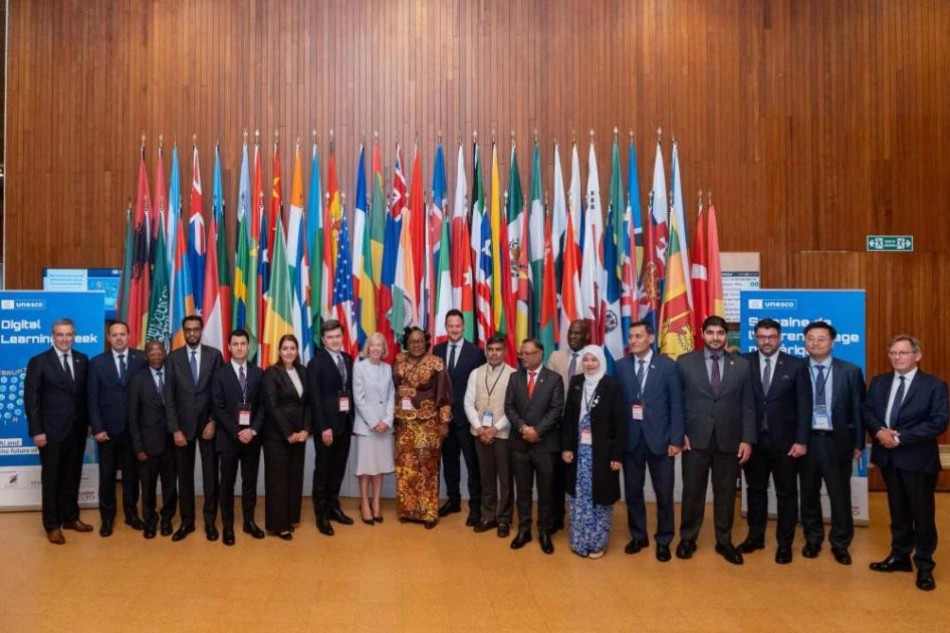
Education Ministry Participates in UNESCO's Digital Learning Week
UAE Positions Itself as AI Education Pioneer at UNESCO's Digital Learning Summit
The UAE Ministry of Education showcased the nation's forward-thinking approach to artificial intelligence in education at UNESCO's Digital Learning Week in Paris, highlighting how the Gulf state is building comprehensive strategies to integrate AI across its educational system. The September 2-5 summit brought together global education leaders to chart the future of AI-powered learning, with the UAE presenting itself as a regional innovator in educational technology transformation.
Strategic Vision Takes Center Stage
Engineer Mohammed Al Qasem, the Ministry's Undersecretary, led the UAE delegation and emphasized the country's "proactive experience and forward-looking vision" in educational technology investment. His presentation outlined how the Emirates has developed an integrated digital transformation strategy that leverages AI across multiple sectors, with education serving as a cornerstone for building future-ready generations.
Al Qasem positioned UNESCO's Digital Learning Week as a critical platform for international cooperation, enabling member states to exchange expertise and insights that contribute to building flexible, inclusive, and high-quality educational systems aligned with sustainable development goals.
Global Context: The AI Education Race
The UAE's participation comes at a pivotal moment when nations worldwide are grappling with how to responsibly integrate AI into their educational frameworks. While countries like Singapore have launched national AI literacy programs and the United States debates AI governance in schools, the UAE is positioning itself as a comprehensive early adopter rather than a cautious observer.
This approach aligns with the Emirates' broader "UAE 2071" vision, which aims to make the country the world's best by the nation's centennial. Educational AI integration represents a critical component of this ambitious timeline, particularly as the UAE seeks to diversify its economy beyond oil dependence.
Summit Focus Areas Signal Industry Priorities
The Paris summit's agenda revealed key priorities shaping global educational AI development. Primary focus areas included how artificial intelligence is reshaping curricula, teaching methodologies, and assessment systems. Additional sessions explored AI's impact on student learning outcomes, curriculum design, educational technology development, and vocational training integration.
Parallel discussions addressed policy frameworks for digital learning platforms, media literacy in the AI era, and regional innovation strategies—topics that directly align with the UAE's national digitalization objectives.
Market Implications and Investment Signals
The UAE's prominent participation signals significant market opportunities for educational technology companies and AI developers. The country's commitment to comprehensive AI integration suggests substantial government investment in educational infrastructure, teacher training programs, and technology partnerships.
For international education firms, the UAE's approach represents a potential model for other Gulf Cooperation Council nations and emerging markets seeking to modernize their educational systems. The emphasis on building "future-ready generations" indicates long-term investment horizons that could attract sustained private sector engagement.
Competitive Positioning in Regional Context
The UAE's UNESCO presentation reinforces its competition with regional rivals like Saudi Arabia, which has launched its own massive educational transformation initiatives under Vision 2030. Both nations are investing heavily in AI and digital technologies, creating a regional innovation race that could accelerate adoption timelines and increase investment flows.
This competitive dynamic benefits global educational technology markets while potentially establishing the Gulf region as a testing ground for AI-powered learning solutions before broader international deployment.
Most Viewed News

 Omar Rahman
Omar Rahman






